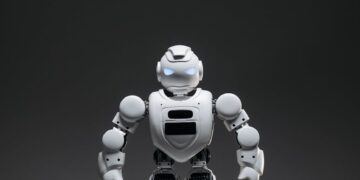The digital age has always been defined by innovation, yet what we are witnessing with artificial intelligence transcends mere advancement. It is a profound metamorphosis, a fundamental rewiring of technology’s very essence. From the intricate layers of software development to the seemingly mundane routines of our daily lives, AI is not just integrating; it is becoming the very fabric of how technological systems operate and what they are capable of achieving. This isn’t a fleeting trend or another cyclical upgrade; it is the fundamental redefinition of how tech works and what it can do, marking a pivotal shift in humanity’s relationship with machines. This article will delve into how AI is orchestrating this pervasive change, exploring its deep impact across various domains.
Reshaping software development fundamentals
At its core, technology is built on software, and AI is fundamentally altering the very process of its creation. Gone are the days when coding was solely a human endeavor of writing line by laborious line. AI-powered tools are now assisting developers in unprecedented ways, from suggesting code snippets and completing functions automatically to identifying and even fixing bugs before they become issues. Platforms like GitHub Copilot exemplify this shift, generating entire blocks of code based on natural language prompts, dramatically accelerating development cycles and reducing human error. Beyond code generation, AI is revolutionizing testing through intelligent automation, simulating complex scenarios, and predicting potential vulnerabilities with precision that manual methods cannot match. Moreover, AI is being employed to optimize existing software, identifying performance bottlenecks and suggesting algorithmic improvements, ensuring applications run more efficiently and consume fewer resources. This deep integration means that software itself is becoming more adaptive, intelligent, and self-improving from its inception, fundamentally redefining the toolkit and methodologies of modern engineering.
Expanding the boundaries of technological capability
Beyond the development pipeline, AI is extending the frontiers of what technology can accomplish across an astonishing array of sectors. What was once considered sci-fi is now becoming practical reality, driven by intelligent algorithms. In healthcare, AI is transforming diagnostics, accelerating drug discovery, and enabling personalized treatment plans tailored to individual genetic makeups. Financial institutions leverage AI for sophisticated fraud detection, algorithmic trading, and risk assessment, making systems more secure and efficient. In creative industries, AI can generate original artwork, compose music, and even write compelling narratives, challenging traditional notions of human creativity. This expansion isn’t merely about automation; it’s about enabling technology to perceive, reason, learn, and act in ways that were previously unimaginable, pushing the boundaries of problem-solving and innovation. The table below illustrates how AI is enhancing traditional technological roles in various sectors:
| Sector | Traditional Tech Role | AI-Enhanced Tech Role |
|---|---|---|
| Healthcare | Data management, EMRs | Predictive diagnostics, personalized medicine, drug discovery acceleration |
| Finance | Transactional processing, basic analytics | Fraud detection, algorithmic trading, risk assessment, personalized financial advice |
| Software Development | Manual coding, debugging | Automated code generation, AI-driven testing, performance optimization |
| Customer Service | Call centers, FAQ pages | Intelligent chatbots, sentiment analysis, proactive support |
The evolving human-technology interface
The pervasive nature of AI is fundamentally transforming how humans interact with technology, shifting from rigid command-line interfaces to more intuitive and conversational experiences. Natural language processing (NLP) has made voice assistants and chatbots incredibly sophisticated, allowing users to interact with devices and services through natural speech or text, rather than complex menus or specific commands. This has democratized access to technology, making it more approachable for a wider demographic. Furthermore, AI is making technology more adaptive and personalized. Recommendation engines, powered by AI, learn individual preferences and habits, curating content, products, and services that are highly relevant. Augmented reality (AR) applications, when infused with AI, can provide context-aware information and interactive experiences that blend the digital with the physical world seamlessly. The relationship is evolving from a user operating a tool to a collaboration with an intelligent agent, where technology anticipates needs, offers insights, and learns from every interaction, making it feel less like a machine and more like a responsive partner.
Navigating the future of an AI-centric world
As AI becomes increasingly embedded in every facet of technology and daily life, it brings with it a complex interplay of opportunities and challenges that demand careful navigation. The future of an AI-centric world promises unprecedented advancements in efficiency, problem-solving, and human potential, but it also necessitates a critical examination of ethical implications. Issues such as data privacy, algorithmic bias, and the transparency of AI decision-making processes are paramount. There is a growing need to develop robust regulatory frameworks that can keep pace with AI’s rapid evolution, ensuring responsible development and deployment. Furthermore, the societal impact, particularly concerning the future of work and the need for new skill sets, requires proactive planning and investment in education and retraining initiatives. The journey into an AI-driven future is not merely about technological implementation; it is about establishing a thoughtful balance between innovation and human-centric values, ensuring that this powerful redefinition of tech serves humanity’s broader interests.
The integration of AI is undeniably more than a fleeting technological trend; it is a monumental redefinition of how technology functions and what it can accomplish. We have explored how AI is revolutionizing software development from its very foundations, enabling capabilities previously confined to science fiction across diverse industries, and fundamentally transforming the way humans interact with digital systems. This pervasive shift signifies an irreversible transformation, moving beyond mere automation to intelligent augmentation and collaboration. As AI becomes an indispensable component of our technological infrastructure and daily routines, it is imperative that we embrace its potential while proactively addressing the ethical, societal, and regulatory challenges it presents. The future of technology is inextricably linked with AI, demanding informed engagement to responsibly shape this new era.


















